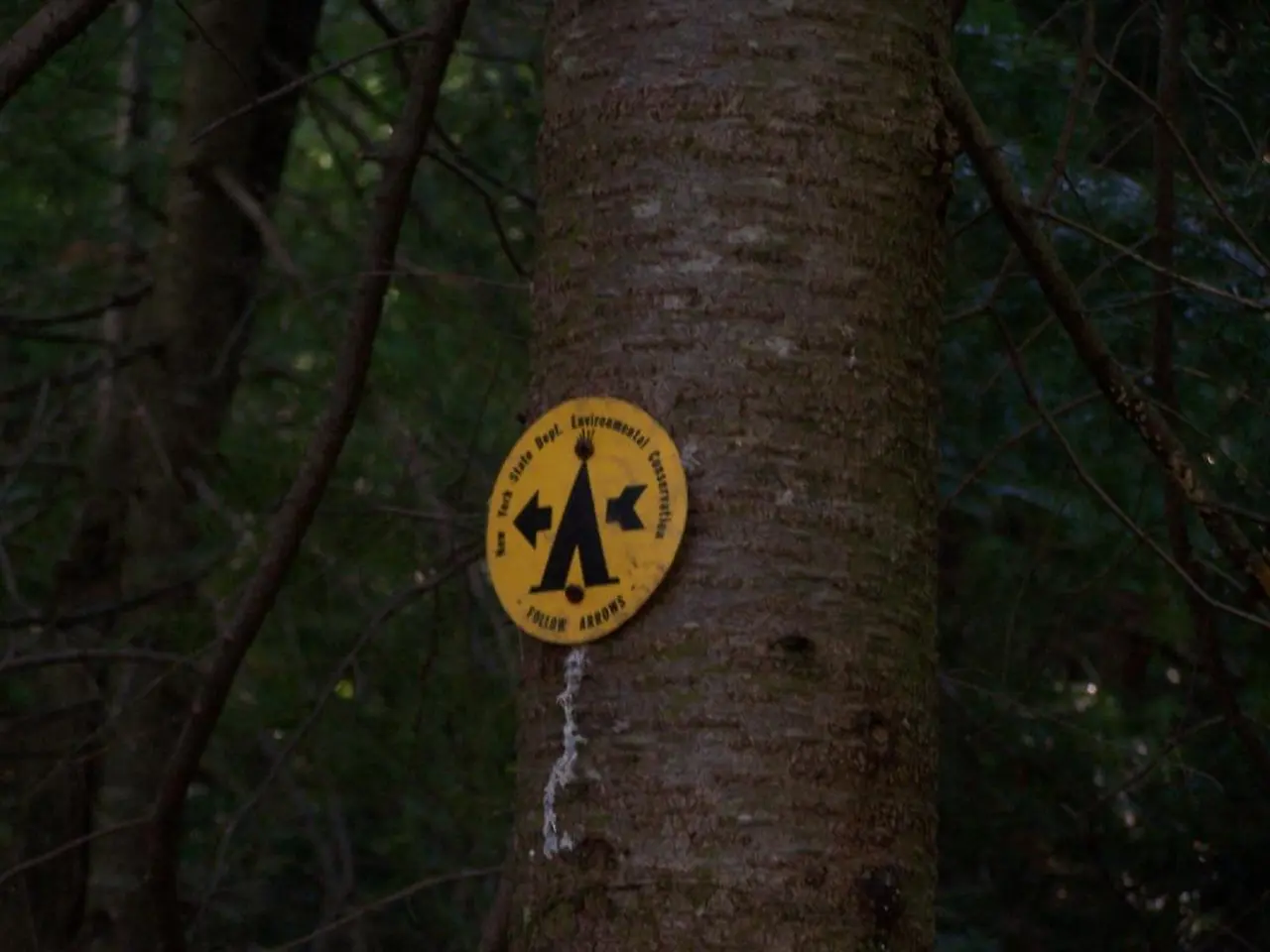News Article: Deliberate Tree Poisoning Cases Spread Across Southwestern Germany
Poissonous plants discovered in the Palatinate region
In recent months, a series of deliberate tree poisoning incidents have been reported in the Palatinate region and neighboring Hessen, raising concerns about the intentional harm to natural resources and public safety.
Incident Overview in the Palatinate Region
Trees, both native deciduous and coniferous species, have shown signs of being sprayed or injected with toxic substances, leading to wilting, leaf discoloration, and in some cases, death. The affected species include oak, beech, and pine trees.
Connection to Hessen
Authorities have noted a pattern of similar tree poisoning incidents in Hessen, suggesting a possible connection or copycat activities. Some toxic substances and methods used in Palatinate cases closely resemble those in Hessen, leading police and environmental agencies in both regions to cooperate in sharing findings and tracking suspects.
Investigation Updates in the Palatinate Region
Environmental forensics teams are analyzing residues from poisoned trees, looking for chemical signatures to trace sources. Police have requested public assistance for information on suspicious activities near affected areas, but as of now, no arrests have been made. Several persons of interest linked to land disputes and extremist groups are under investigation.
Local governments are increasing patrols and monitoring in forests and parks vulnerable to attacks. The police in Ludwigshafam are investigating a case of criminal damage due to the tree poisoning.
Specific Incident in the Rhein-Pfalz District
Four more than 100-year-old plane trees in the Rhein-Pfalz district of the Palatinate region have been targeted. Franziska Tavernier, climate protection manager of the Dannstadt-Schauernheim municipal association, has commented on the incident, stating that a strong plant protection agent was applied into the holes drilled into the root area of the trees. The holes are particularly large, and a new hole was drilled into one of the trees at the end of July.
The trees are located on the grounds of a local football club, and if they need to be felled, transported, and replanted, the community will have to bear the costs. The SWR had previously reported about this incident, and it has made headlines in both Hessen and the Palatinate region.
Similar Incidents Across Germany and Europe
Over the past decade, cases of tree poisoning have appeared sporadically across Germany and other European countries. Similar motives often include conflicts over land use, protests against forestry practices, or acts of terrorism targeting natural resources. Scientific communities and environmental groups emphasize the ecological cost and call for stronger legal protections.
Recently, eight oaks, a walnut tree, and a chestnut tree were poisoned with a herbicide in the south Hessian Riedstadt-Goddelau. The culprits behind the tree poisoning incidents in Hessen are still at large.
The poisoned trees, if not properly treated, could have stood for another 100 years according to Franziska Tavernier. The culprits' actions are causing harm to the public, and the authorities are working diligently to find those responsible and bring them to justice.
- The intentional harm to natural resources in the Palatinate region, such as the poisoning of over a hundred-year-old plane trees in the Rhein-Pfalz district, raises concerns not only for public safety but also for the future of environmental-science and the preservation of various tree species.
- In addition to the tree poisoning incidents in Southwestern Germany, similar cases have been reported across Europe over the past decade, often rooted in conflicts over land use, forestry practices, or acts of terrorism, emphasizing the need for stronger legal protections in the realm of science and the environmental-science community.






